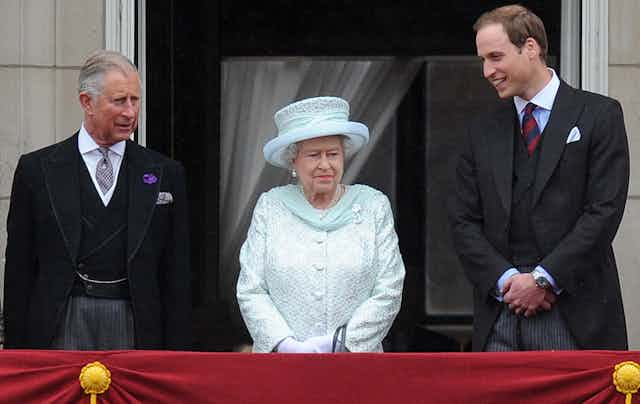Celebrations of Prince Charles’s 70th birthday featured much talk of succession and his 66 years of preparation to become king. But there was hardly any explicit reference to the death of the existing monarch as a requirement for that transition of power to take place.
Instead, the Queen’s future death was skirted around with reference to the “passing” of the monarch and more emphasis on logistics – how her son (and the public) will be informed, and the machinery that will grind behind the scenes at Buckingham Palace.
This approach is, I think, indicative of a general unease with talking about dying. It reflects what I call our “experiential poverty” when it comes to death.
Due to a continually ageing population, many in the UK are lacking in firsthand knowledge of what it is to deal with death. There is an ever growing number of people who have not cared for someone at the end of their life, seen someone die, organised a funeral, administered an estate, or experienced close bereavement.
Added to this is the fact that these days most dying occurs in institutions (more than two thirds of people in England and Wales died in either a hospital, care home or hospice in 2017). Funerals are arranged by funeral directors, wills are dealt with by solicitors. As a result, there are millions of people with little or no experience of what it means to manage bodies, emotions, processes and procedures at the end of a life.
Read more: Death matters – so why do the British hate talking about it?
Such a widespread lack of familiarity with death means that in the UK, people are ill prepared to deal with the end of life and its consequences. This is seen time and time again, in policy and media debates about increasing funeral costs and access to state support, living wills, assisted suicide and so on.
Culturally, economically and politically, the population lacks experience of, and engagement with death. And while there is no instant remedy for this experiential poverty, there are things we can put in place to ensure that it does not become a chronic, possibly insurmountable, social problem.
Family time
Crucially, the end of life needs to become an inter-generational and shared experience. It should not be left to the baby boomers to sort out their parent’s deaths. Rather, efforts should be made to include multiple generations in discussions about how to deal with dying, death and bereavement.
Such inclusion and involvement could help the transmission of ideas, knowledge and experience, building practice and customs that reflect changes within families and society more broadly over the past few decades.
Within families where there are multiple generations, adult children need to be involved in the care of their grandparents and the preparation for their deaths – as a preparation for the ends of their own parents’ lives. Older adults typically take on the responsibilities of managing the end of life as a way of protecting young generations from its realities. While admirable in intent, this simply means that a systemic lack of exposure to – and ill preparation for – dying and death continues.

Young adults should be encouraged to create pensions and wills to prepare for their later years and the end of their lives, despite the pressures of work, renting, home ownership and raising young families.
All those over 18 and able need to be directly schooled in dying, and in events and administration after the death of a loved one. Experiential learning will better prepare individuals for their own mortality, and help foster inter-generational relationships and potentially go some way to alleviating the social care time bomb.
This will expose disagreements and divergent practices between generations, helping individuals come together to make shared decisions about care, death, funerals and estate administration. It will respond to the current reliance (dependence) on bureaucrats and funeral directors to know what to do at the end of life. It could lead to more familial participation in palliative and end-of-life care.
For his part, Prince Charles appears well prepared for his mother’s demise, even if her death is not explicitly mentioned. Certainly it seems he is primed for taking on the role of sovereign when the time comes. Perhaps we could all learn from such as apprenticeship model when it comes to facing up to death and its consequences.
And I hope that the Duke of Cambridge, himself a king in waiting, has been involved in plans for commemoration and national mourning when his grandmother dies – so that he may learn for when the time comes for his own father’s death.

